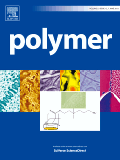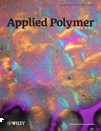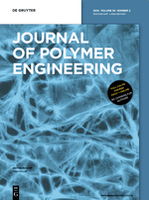
ACTA POLYMERICA SINICA
Scope & Guideline
Shaping the Landscape of Polymer Innovation Globally
Introduction
Aims and Scopes
- Polymer Synthesis and Modification:
Research related to the synthesis of novel polymers, including methodologies like ring-opening polymerization, copolymerization, and functionalization of existing polymer frameworks. - Characterization Techniques:
Utilization of advanced characterization methods such as molecular dynamics simulations, spectroscopy, and rheology to analyze polymer structures and properties. - Applications of Polymers:
Exploration of practical applications of polymers in various fields such as electronics, energy storage, biomedical devices, and environmental sustainability. - Nanocomposites and Hybrid Materials:
Development of polymer-based nanocomposites and hybrid materials that enhance the mechanical, thermal, and electrical properties of polymers. - Biodegradable and Sustainable Polymers:
Investigation into environmentally friendly polymers, including biodegradable options and the use of renewable resources in polymer synthesis. - Smart and Responsive Polymers:
Research into stimuli-responsive polymers that change their properties in response to external stimuli, such as temperature, pH, or light.
Trending and Emerging
- Biopolymer Engineering:
An increasing number of studies focus on the development and application of biopolymers, including their synthesis from renewable resources and their use in biomedical applications. - Smart and Functional Materials:
Emerging research on smart materials, including self-healing and stimuli-responsive polymers, is gaining traction, showcasing their potential in applications ranging from sensors to drug delivery. - Nano- and Micro-structured Polymers:
There is a growing interest in the design and application of nano- and micro-structured polymer systems for enhanced performance in various applications, including drug delivery and energy storage. - Polymer-Based Energy Solutions:
Research is increasingly directed towards the development of polymeric materials for energy applications, including batteries, fuel cells, and solar cells, reflecting the global energy transition. - Computational Polymer Science:
The application of computational methods, such as machine learning and molecular simulations, is emerging as a significant trend, facilitating the design and optimization of new polymer materials.
Declining or Waning
- Traditional Polymer Blends:
There has been a noticeable reduction in studies focusing on conventional polymer blends, possibly due to the emergence of more advanced composite materials that offer superior properties. - Basic Polymer Processing Techniques:
Research centered on basic processing techniques such as extrusion and molding appears to be waning, as the field moves towards more complex and tailored processing methods. - Single-Use Plastic Applications:
As the emphasis on sustainability grows, research on single-use plastic applications has decreased, reflecting a broader societal shift towards reducing plastic waste. - Conventional Photovoltaic Materials:
Research on traditional polymer-based photovoltaic materials has declined in favor of innovative organic-inorganic hybrid systems that promise better efficiency and stability. - Non-renewable Resource Polymers:
There is a decreasing trend in studies focused on polymers derived from non-renewable resources, aligning with the global push towards sustainable and bio-based materials.
Similar Journals

INTERNATIONAL JOURNAL OF POLYMER ANALYSIS AND CHARACTERIZATION
Illuminating the complexities of polymeric materials.International Journal of Polymer Analysis and Characterization is a distinguished scholarly publication dedicated to the field of polymer science, with a focus on innovative methodologies and significant advances in the analysis and characterization of polymeric materials. Published by Taylor & Francis Ltd in the United Kingdom, this journal serves as a vital resource for researchers, professionals, and students deeply engaged in Analytical Chemistry, Chemical Engineering, and Polymer Science. With a convergence spanning from 1995 to 2024, it holds a Q3 ranking in the 2023 category quartiles for its valuable contributions to the fields of Analytical Chemistry, Chemical Engineering, and Polymers and Plastics. Despite being a non-open access publication, its rigorous peer-review process and comprehensive coverage of current trends ensure that the journal remains a crucial platform for disseminating impactful research. The journal is indexed in various databases, underscoring its relevance and quality in the academic community. Exploratory studies and articles that push the boundaries of polymer analysis find a welcoming home within these pages, making it an essential read for those aiming to stay at the forefront of polymer research.

POLYMER SCIENCE SERIES A
Connecting Ideas, Inspiring Discoveries in Polymer ResearchPOLYMER SCIENCE SERIES A is a distinguished journal dedicated to the field of polymer science, with a focus on advancing knowledge in materials chemistry and polymers and plastics. Published by MAIK NAUKA/INTERPERIODICA/SPRINGER, this journal provides a platform for researchers and practitioners to disseminate their findings and innovations. With an ISSN of 0965-545X and an E-ISSN of 1555-6107, it is widely accessible to the academic community. Although currently non-open access, the journal has maintained its significance since its inception in 1991, boasting an evolving emphasis on contemporary issues in polymer science up to 2024. Ranked in the Q3 category for both Materials Chemistry and Polymers and Plastics in 2023, POLYMER SCIENCE SERIES A plays a crucial role in the broader academic landscape, particularly for those committed to understanding and enhancing polymer materials. The journal’s reputation is solidified by its Scopus rankings, where it addresses critical advancements and fosters collaborative research opportunities within the community. We invite researchers, professionals, and students to explore the valuable insights published within these pages.

POLYMER
Advancing the Frontiers of Polymer SciencePOLYMER, an esteemed journal published by Elsevier Science Ltd, stands at the forefront of polymer science, presenting cutting-edge research that encompasses the realms of Materials Chemistry, Organic Chemistry, and Polymers and Plastics. With a remarkable impact factor reflecting its significance in the academic community, POLYMER has been a vital resource since its inception in 1960, contributing to a converged body of knowledge through to 2024. Rated Q1 in all relevant categories as of 2023, and boasting impressive Scopus rankings, this journal not only facilitates advanced discussions in polymer synthesis, characterization, and applications but also serves as a critical platform for collaborative research among scholars, professionals, and students. While it offers content primarily via subscription, POLYMER remains dedicated to fostering innovation and excellence in the field, making it an essential read for anyone passionate about polymer science.

GIANT
Advancing the Frontiers of Materials Science.GIANT is a pioneering open-access journal published by Elsevier that has rapidly established itself as a cornerstone in the fields of Chemistry, Materials Chemistry, Polymers and Plastics, and Surfaces, Coatings and Films. Since its inception in 2020, GIANT has been committed to disseminating cutting-edge research and facilitating scholarly communication in these dynamic areas. With a remarkable Q1 ranking across multiple categories, the journal reflects an impressive impact factor within the academic community, evidenced by its standing in the top 82nd percentile in several Scopus classifications. Based in the Netherlands at Radarweg 29, Amsterdam, GIANT embraces a global audience through its open-access model, ensuring that groundbreaking discoveries are accessible to researchers, professionals, and students alike. Fostering innovation, the journal strives to shape the future of materials science and chemistry, making significant contributions in an era characterized by rapid scientific advancement.

ACS Macro Letters
Innovating Research for Tomorrow's Chemical ChallengesACS Macro Letters, published by the American Chemical Society, is a leading journal in the fields of Inorganic Chemistry, Materials Chemistry, Organic Chemistry, and Polymers and Plastics. Established in 2012, this journal has swiftly ascended to the forefront of chemical research with an impressive reputation, as evidenced by its 2023 Scopus rankings placing it in the first quartile across multiple categories. The journal's objective is to disseminate timely and concise articles that advance the study of macromolecules and their applications, making it an essential resource for researchers, professionals, and students alike. With a focus on fostering innovation and facilitating collaboration within the chemical community, ACS Macro Letters presents a robust platform for scientists to share their groundbreaking findings. Being based in the United States, it serves as a central hub for global discourse in the chemical sciences, although it does not currently offer Open Access options. The journal's commitment to high-quality content is further underscored by its prestigious impact factor and acceptance into elite academic quartiles, signifying its influence and importance in shaping future research.

JOURNAL OF APPLIED POLYMER SCIENCE
Connecting Theory with Practice in Polymer ScienceThe Journal of Applied Polymer Science, published by Wiley, is a leading journal in the field of polymer science, showcasing innovative research and applications in various domains since its inception in 1959. With an ISSN of 0021-8995 and an E-ISSN of 1097-4628, it is indexed in prominent databases, maintaining a strong presence with Scopus rankings placing it in the Q2 category across multiple disciplines, including Chemistry, Materials Chemistry, and Polymers and Plastics. The journal’s commitment to advancing scientific knowledge is reflected in its impact on the materials science community, with noteworthy rankings such as #38 in Surfaces, Coatings and Films and #51 in Polymers and Plastics. Though not an open-access publication, it remains a vital resource for researchers, professionals, and students aiming to deepen their understanding of polymer applications and to stay abreast of the latest developments in this ever-evolving field. With a focus on high-quality research, the Journal of Applied Polymer Science continues to be a cornerstone for those engaged in polymer research and its myriad applications.

Polymer Reviews
Shaping the future of polymer applications.Polymer Reviews, published by Taylor & Francis Inc, is an esteemed journal dedicated to the intricate and evolving field of polymer science. With its ISSN 1558-3724 and E-ISSN 1558-3716, the journal has established a significant presence among researchers and practitioners alike, evidenced by its impressive categorization in the Q1 quartiles across multiple disciplines, including Biomedical Engineering, Materials Chemistry, and Renewable Energy. Since its inception in 2006 and continuing through 2024, Polymer Reviews has consistently aimed to advance the knowledge base of polymer applications and innovations, providing a platform for comprehensive review articles that stimulate further research and inspire practical solutions. The journal, ranking within the top percentile across several Scopus categories, underscores its impact and relevance in a rapidly developing scientific landscape. Though not an open-access journal, it remains a vital resource for those invested in the future of materials science and engineering.

JOURNAL OF POLYMER ENGINEERING
Advancing the Frontiers of Polymer Science.JOURNAL OF POLYMER ENGINEERING, published by Walter de Gruyter GmbH, stands as a pivotal platform in the field of polymer science and engineering. With an ISSN of 0334-6447 and an E-ISSN of 2191-0340, this journal has been a vital contributor to the academic landscape since its inception, spanning publications from 1981 to 2024. As a recognized entity in the realms of Chemical Engineering, Materials Chemistry, and Polymers and Plastics, it holds a respectable position in Q3 quartile rankings according to the latest assessments. The journal is positioned to promote the exchange of cutting-edge research findings, technological advancements, and critical reviews that address the complexities of polymer application and innovation. Researchers and professionals will find a wealth of information, from experimental methodologies to theoretical analyses, all designed to inspire and elevate the current understanding of polymer engineering. By fostering collaboration and dissemination of knowledge, the JOURNAL OF POLYMER ENGINEERING remains crucial for advancing research and education in its specialized domains.

JOURNAL OF POLYMER RESEARCH
Pioneering Insights into Polymer Science and TechnologyJOURNAL OF POLYMER RESEARCH is a leading peer-reviewed journal published by SPRINGER, specializing in the dynamic fields of polymer science, materials chemistry, and organic chemistry. Operating since 1994, this esteemed journal has consistently delivered high-quality research articles that illuminate the latest advancements and innovations in polymer technology. With an increasing impact factor and placed in the Q2 category for both Materials Chemistry and Polymers and Plastics, it stands as a valuable resource for researchers, professionals, and students seeking cutting-edge knowledge in these areas. The journal is indexed in Scopus, highlighting its significance in the academic community, with notable rankings in Materials Science and Organic Chemistry. While it does not currently offer open access options, the meticulous selection of research and thorough peer-review process ensures each article's contribution to the field is both robust and impactful. Researchers aiming to expand their understanding and engage with pioneering studies will find JOURNAL OF POLYMER RESEARCH an indispensable platform.

POLYMER BULLETIN
Unveiling Innovations in Polymer ResearchPOLYMER BULLETIN is a prominent journal in the field of polymer science, published by SPRINGER in Germany. Established in 1978, this peer-reviewed journal focuses on the latest research and developments in polymer chemistry, materials science, and condensed matter physics, boasting a commendable impact factor indicative of its rigorous academic standards. With a Q2 ranking in multiple categories including Chemistry (Miscellaneous), Condensed Matter Physics, Materials Chemistry, and Polymers and Plastics, POLYMER BULLETIN serves as an essential resource for researchers, professionals, and students aiming to stay abreast of innovative findings and methodologies within these interdisciplinary landscapes. Although the journal does not currently offer open access, it provides invaluable insights and data that significantly contribute to the advancement of polymer science. For more information and to access published articles, visit the journal's page on the Springer website.